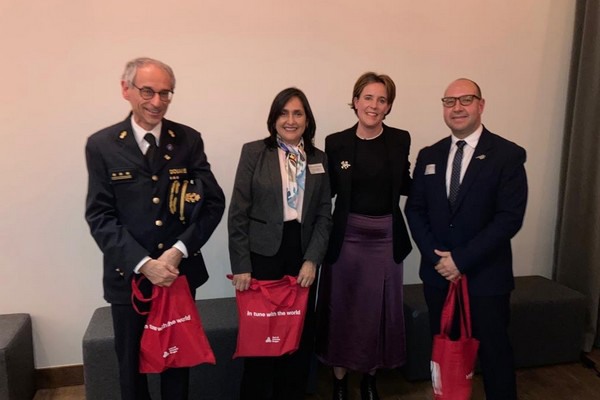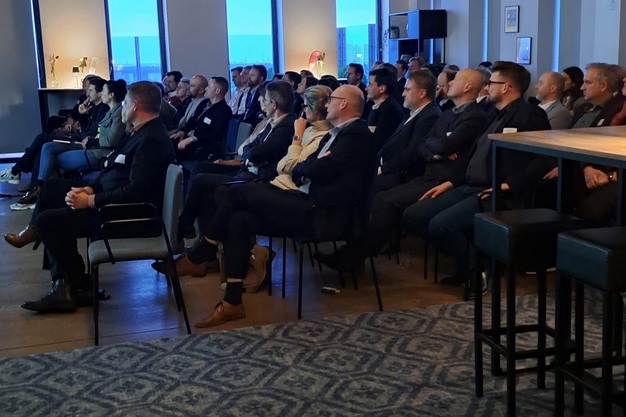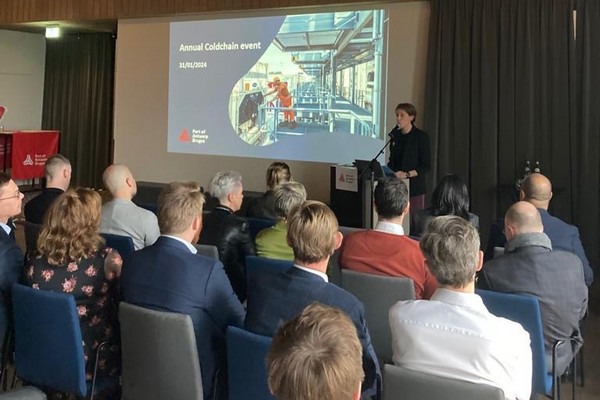Despite a challenging year marked by geopolitical tensions, which saw a 7.2% TUE drop in overall container volumes at the Port of Antwerp-Bruges, the cold chain seems unscathed. That was evident at the port's annual Cold Chain event on Wednesday, January 31. "It's a boost for the cold chain community. With an eight percent increase, we processed a record one million-plus TEU refrigerated containers," begins Ingrid Vanstreels, business development manager at the Port of Antwerp-Bruges.

The port initiated the event to bring together the various cold chain partners and kick off the year. Each year, they invite a key trading partner to speak; this time, the honor went to Costa Rica. "It's primarily a networking moment where we reflect on the past year's achievements, opportunities, and marketing and look ahead to the next year. Over the years, it's matured."
"It's gone from a modest annual meeting to an event where we also provide an overview of the annual figures. Those just keep growing," says Ingrid. Despite the farmers' protests, about 70 stakeholders from the cold chain community were present, including shipping companies, cold stores, quality surveyors, and specialized terminals. The unique challenges of 2023 - which the cold chain managed to avoid - were shared with them.

Number 2 in import of refrigerated containers
This year, a Costa Rican delegation was a guest at the event. "Every year, we invite an importing trading partner delegation to come and speak. Two years ago, it was Ecuador, which is our largest trading partner regarding imported fresh products. Last year, it was Morocco. The traffic from this country is still small, but it's an emerging country with many opportunities. This year, we were honored to receive Eliana Villalobos Cardenas, ambassador of Costa Rica for Belgium and Luxembourg."
"And Alexander Roman, director of North Europe of Procomer. Costa Rica is number 2 regarding fresh produce imports, which made a discussion with them interesting. They gave a trade presentation about the country. You have to consider trade figures and which products represent a large share of Costa Rican exports. As it happens, along with fresh fruit, medical supplies, for example, make up much of the country's exports," Ingrid explains.

Trade and drug control cooperation between the two countries were discussed. "The flow of exotic fruit from Latin America to Belgium remains a dangerous route that still greatly concerns us. Last year, there were several drug seizures, which is good. However, that means more drugs have likely been smuggled among the fruit."
"That automatically leads to increased drug-related violence. It's a vicious circle that must be carefully considered. More people are eating South American products, but right away, that involves more risks. We're working hard on that together; the presentation made that clear, too," Ingrid points out.

Bilateral EU - Latin America deal
"How do we deal with that? And what actions are being taken? Also, on the South American side, so there's control from two points. More and more is being invested in this. For instance, more improved scanning equipment and inspections are being looked at. At the port, containers from sensitive countries are already placed separately. Scanning images can be quickly viewed there, and no suspicious people can come near the containers."
"Also, work is underway to expand a bilateral agreement between the EU and countries like Costa Rica. There's also a mission underway in which the mayors of Antwerp, Rotterdam, and Hamburg will visit Latin America to accelerate cooperation in the fight against drug smuggling. Think primarily about the exchange of scanning images and cooperation at the security level, so, at no point in the logistics process can anyone approach the containers," says Vanstreels.

There was general talk of challenging times that will continue for a while. But the cold chain is largely optimistic. "There are many challenges like strong competition among the nearby ports, where goods flows can easily shift. Yet, besides the fight against drug smuggling, digitization was perhaps what came up most."
"There are already many projects in the pipeline for this. Digitizing customs processes is being worked very hard on and is very high on the agenda. People are primarily positive about the future. With volumes continuously increasing and progress in cooperation, everyone agreed they were ready for the new year," Ingrid concludes.
For more information:
Ingrid Vanstreels
Port of Antwerp-Bruges
www.portofantwerpbruges.com
